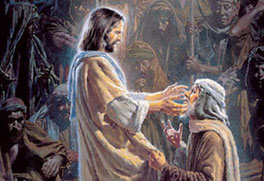“Whatever
you have learned or received or heard from me, or seen in me--put it into
practice. And the God of peace will be with you.” (Philippians 4:9)
Today
marks the end of the fourth week of my sabbatical. Our family is in the midst of a
transition from one call to the next.
We will be moving all the way across the country, from Yakima,
Washington in the Pacific Northwest to Orlando, Florida in the Southeast. In terms of the contiguous United States, only Seattle to Miami would be a
greater distance! The last four
weeks have given me an opportunity to disengage, rest, and reflect upon the
past seven years. I have always
believed that there are lessons to be learned through each experience and
season. God facilitates growth
when we open ourselves up to what He wants to show and teach us.
As I am in transition, I no longer have a church newsletter as a writing outlet. Thus,
I wanted to use this blog over the next several weeks to offer some of the lessons I have
learned- as an exercise in closure. The first one is an
affirmation of the quote attributed to Peter Drucker: Culture really does
eat strategy for breakfast!
Five
and a half years ago, we were experiencing quite a bit of conflict. The conflict was unhealthy as it was personalized and pervasive. Triangulation and gossip had eroded
trust. Lack of transparency and
communication had created a divide between the leadership of the church and the
congregation. Consequently, we were stuck and sinking fast. We could not get any traction in our efforts to move the congregation forward and could not reverse a nearly twenty-year trend of declining membership and
At
the recommendation of a colleague, we hired TAG Consulting to come in and help
us. Part of that help entailed a
health assessment of the church that revealed quite a bit of dysfunction at the
leadership level. We were told
that our system
was perfectly designed to produce the results we were getting. "System" is defined
as the combination of structures, processes, and people. The “system” is intimately connected to
the issue of culture. Additionally, we were also
told that a congregation or organization is always a reflection of its
leadership. Unhealthy leadership = unhealthy congregation.
My coach through TAG, Tod Bolsinger (http://bolsinger.blogs.com), spent a
great deal of time with me, talking through the topic of culture. Tod once
wrote that the “culture of a group is like its ‘DNA,’ it’s
part of what makes it what it is. A ‘culture’ is the result of the intentional
and mostly unintentional ‘habits’ of a people. The assumptions, ‘givens,’ the
unreflected-upon actions and attitudes that make up ‘who we are’ that most of
the time we don’t even think about.”[i] In
one of our coaching sessions, Tod hit me with this: “The primary responsibility of the leader of any
organization is to set the culture.”
He went on to tell me (as he spelled out in the blog post) that you can
have a compelling vision or a well thought-out strategy, but vision and
strategy can always be thwarted by the intentional and unintentional habits of
the people.
We
set out to address our issues and create a healthier culture- one that put people first. We committed to the core value of engaging and nurturing relationships. We committed to hold each other
accountable to that value. We
committed to eliminate triangulation and gossip from our practices. For the most part, I believe we
succeeded. On occasion, when we
reverted back to old bad habits, our efforts at meeting our vision were quickly
derailed. In fact, it was amazing
and even eye-opening to me how quickly that happened.
Five
and a half years later, I am convinced that the single biggest lesson to be
learned in leadership is the importance of setting the culture. Companies like Apple, Google,
Starbucks, and Disney are very clear about, and never do anything that would be a violation against, their core values (a component of culture), and it shows. Vision and strategy are incredibly important- there’s no question about that. The issue of culture, however, is of utmost importance. Like a plant in fertile soil, strategy and efforts to fulfill vision will thrive in a healthy culture. It's what separates the great organizations from the good ones. Whether it’s the senior leader or the
senior leadership team, an organization’s success will depend on what kind of
culture is being cultivated by those leaders.
Epiphany: If it is true that culture eats strategy for breakfast, the church leader's job is to make sure transparency, accountability, communication, and any and all Christ-like values are on the menu.










